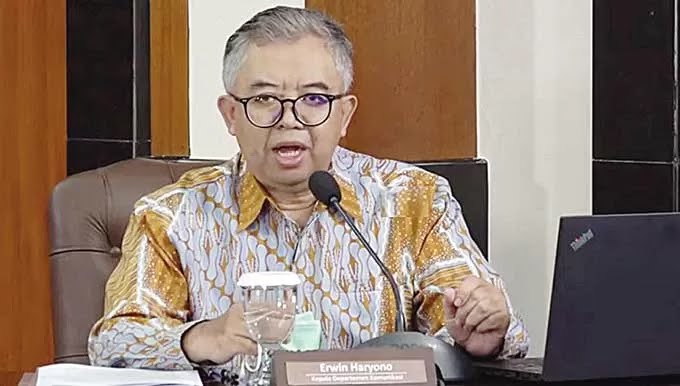Bank Indonesia Reports Significant Net Foreign Capital Inflow Despite Market Fluctuations
JAKARTA, RAKYAT NEWS- Bank Indonesia (BI) has reported a net foreign capital inflow of IDR 1.62 trillion into the domestic financial markets for the period from August 5 to August 8, 2024.
The inflow includes IDR 2.24 trillion in government bonds (SBN) and IDR 0.65 trillion in the stock market, while there was a net outflow of IDR 1.28 trillion from the Bank Indonesia Rupiah Securities (SRBI).
For the year 2024 up to August 8, foreign capital outflows from the SBN market totaled IDR 21.75 trillion, whereas net inflows into SRBI amounted to IDR 174.51 trillion and IDR 0.66 trillion into the stock market. Data up to August 8, 2024, indicates that non-residents had net purchases of IDR 44.16 trillion in SRBI, IDR 12.20 trillion in SBN, and IDR 0.32 trillion in stocks.
Erwin Haryono, Head of BI’s Communications Department, highlighted that the investment risk premium, or the five-year credit default swap (CDS) for Indonesia, was 76.32 basis points (bps) as of August 8, 2024, down from 79.25 bps on August 2, 2024.
Additionally, the yield on Indonesia’s 10-year SBN decreased to 6.78%, while the yield on the 10-year US Treasury Note increased to 3.988%.
On August 9, 2024, the Rupiah opened at IDR 15,925 per US dollar, weakening from the previous day’s close of IDR 15,890 per US dollar. The US dollar index strengthened to 103.22 at the end of trading on August 8.
Bank Indonesia continues to reinforce its coordination with the government and related authorities, optimizing policy mix strategies to support Indonesia’s external economic resilience.
The recent data reflects a robust interest from foreign investors despite global market volatility. The substantial inflows into Indonesia’s financial markets demonstrate continued confidence in the country’s economic stability and growth prospects.
This positive trend could further support Indonesia’s financial markets and overall economic resilience in the coming months.
As Indonesia navigates through global economic challenges, the central bank’s strategy to attract and retain foreign capital remains crucial. Bank Indonesia continues to employ a mix of policy tools to enhance market stability and investor confidence. This proactive approach is expected to bolster Indonesia’s position as a key investment destination in the region. (Uki Ruknuddin)


























Tinggalkan Balasan